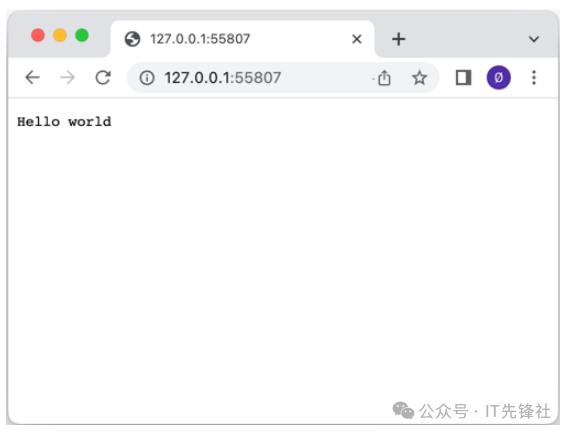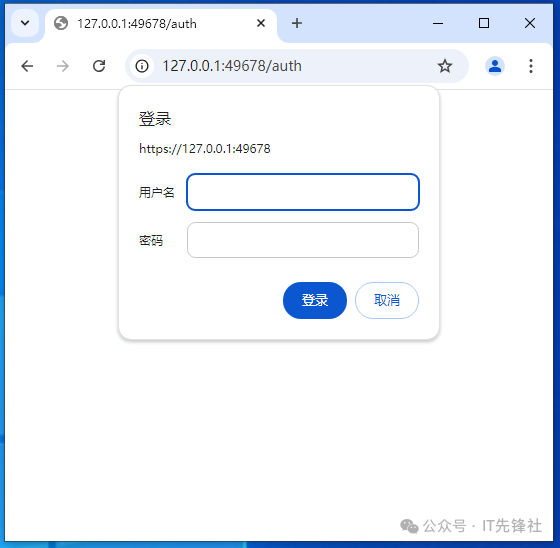This blog post demonstrates how to create a simple HTTP service using Qt6.

This example shows how to establish a server using the QHttpServer class. The server listens on a TCP port using the bind() function of QTcpServer and adds different URL handlers using the route() function.
QSslConfiguration conf = QSslConfiguration::defaultConfiguration(); const auto sslCertificateChain = QSslCertificate::fromPath(QStringLiteral(":/assets/certificate.crt")); if (sslCertificateChain.empty()) { qWarning() << QCoreApplication::translate("QHttpServerExample", "Couldn't retrieve SSL certificate from file."); return -1; } QFile privateKeyFile(QStringLiteral(":/assets/private.key")); if (!privateKeyFile.open(QIODevice::ReadOnly)) { qWarning() << QCoreApplication::translate("QHttpServerExample", "Couldn't open file for reading: %1") .arg(privateKeyFile.errorString()); return -1; } conf.setLocalCertificate(sslCertificateChain.front()); conf.setPrivateKey(QSslKey(&privateKeyFile, QSsl::Rsa)); privateKeyFile.close(); auto sslserver = std::make_unique<QSslServer>(); sslserver->setSslConfiguration(conf); if (!sslserver->listen() || !httpServer.bind(sslserver.get())) { qWarning() << QCoreApplication::translate("QHttpServerExample", "Server failed to listen on a port."); return -1; } quint16 sslPort = sslserver->serverPort(); sslserver.release();In the above code, the QSslConfiguration class is used to configure SSL settings for QHttpServer related to HTTPS.
httpServer.addAfterRequestHandler(&httpServer, [](const QHttpServerRequest &, QHttpServerResponse &resp) { auto h = resp.headers(); h.append(QHttpHeaders::WellKnownHeader::Server, "Qt HTTP Server"); resp.setHeaders(std::move(h)); });The above code uses the addAfterRequestHandler() function to process the QHttpServerResponse object in QHttpServer after the route(). The code demonstrates how to add response headers.
The complete code for main.cpp is as follows:
// Copyright (C) 2018 The Qt Company Ltd.// SPDX-License-Identifier: LicenseRef-Qt-Commercial OR BSD-3-Clause
#include <QHttpServer>#include <QHttpServerResponse>
#if QT_CONFIG(ssl)# include <QSslCertificate># include <QSslKey># include <QSslServer>#endif
#include <QCoreApplication>#include <QFile>#include <QJsonObject>#include <QString>#include <QTcpServer>
using namespace Qt::StringLiterals;
static inline QString host(const QHttpServerRequest &request){ return QString::fromLatin1(request.value("Host"));}
int main(int argc, char *argv[]){ QCoreApplication app(argc, argv);
QHttpServer httpServer; httpServer.route("/", []() { return "Hello world"; });
httpServer.route("/query", [] (const QHttpServerRequest &request) { return host(request) + u"/query/"_s; });
httpServer.route("/query/", [] (qint32 id, const QHttpServerRequest &request) { return u"%1/query/%2"_s.arg(host(request)).arg(id); });
httpServer.route("/query/<arg>/log", [] (qint32 id, const QHttpServerRequest &request) { return u"%1/query/%2/log"_s.arg(host(request)).arg(id); });
httpServer.route("/query/<arg>/log/", [] (qint32 id, float threshold, const QHttpServerRequest &request) { return u"%1/query/%2/log/%3"_s.arg(host(request)).arg(id).arg(threshold); });
httpServer.route("/user/", [] (const qint32 id) { return u"User "_s + QString::number(id); });
httpServer.route("/user/<arg>/detail", [] (const qint32 id) { return u"User %1 detail"_s.arg(id); });
httpServer.route("/user/<arg>/detail/", [] (const qint32 id, const qint32 year) { return u"User %1 detail year - %2"_s.arg(id).arg(year); });
httpServer.route("/json/", [] { return QJsonObject{ { {"key1", "1"}, {"key2", "2"}, {"key3", "3"} } }; });
httpServer.route("/assets/<arg>", [] (const QUrl &url) { return QHttpServerResponse::fromFile(u":/assets/"_s + url.path()); });
httpServer.route("/remote_address", [](const QHttpServerRequest &request) { return request.remoteAddress().toString(); });
// Basic authentication example (RFC 7617) httpServer.route("/auth", [](const QHttpServerRequest &request) { auto auth = request.value("authorization").simplified();
if (auth.size() > 6 && auth.first(6).toLower() == "basic ") { auto token = auth.sliced(6); auto userPass = QByteArray::fromBase64(token);
if (auto colon = userPass.indexOf(':'); colon > 0) { auto userId = userPass.first(colon); auto password = userPass.sliced(colon + 1);
if (userId == "Aladdin" && password == "open sesame") return QHttpServerResponse("text/plain", "Success\n"); } } QHttpServerResponse resp("text/plain", "Authentication required\n", QHttpServerResponse::StatusCode::Unauthorized); auto h = resp.headers(); h.append(QHttpHeaders::WellKnownHeader::WWWAuthenticate, R"(Basic realm="Simple example", charset="UTF-8")"); resp.setHeaders(std::move(h)); return std::move(resp); });
//! [Using addAfterRequestHandler()] httpServer.addAfterRequestHandler(&httpServer, [](const QHttpServerRequest &, QHttpServerResponse &resp) { auto h = resp.headers(); h.append(QHttpHeaders::WellKnownHeader::Server, "Qt HTTP Server"); resp.setHeaders(std::move(h)); }); //! [Using addAfterRequestHandler()]
auto tcpserver = std::make_unique<QTcpServer>(); if (!tcpserver->listen() || !httpServer.bind(tcpserver.get())) { qWarning() << QCoreApplication::translate("QHttpServerExample", "Server failed to listen on a port."); return -1; } quint16 port = tcpserver->serverPort(); tcpserver.release();
#if QT_CONFIG(ssl) //! [HTTPS Configuration example] QSslConfiguration conf = QSslConfiguration::defaultConfiguration(); const auto sslCertificateChain = QSslCertificate::fromPath(QStringLiteral(":/assets/certificate.crt")); if (sslCertificateChain.empty()) { qWarning() << QCoreApplication::translate("QHttpServerExample", "Couldn't retrieve SSL certificate from file."); return -1; } QFile privateKeyFile(QStringLiteral(":/assets/private.key")); if (!privateKeyFile.open(QIODevice::ReadOnly)) { qWarning() << QCoreApplication::translate("QHttpServerExample", "Couldn't open file for reading: %1") .arg(privateKeyFile.errorString()); return -1; }
conf.setLocalCertificate(sslCertificateChain.front()); conf.setPrivateKey(QSslKey(&privateKeyFile, QSsl::Rsa));
privateKeyFile.close();
auto sslserver = std::make_unique<QSslServer>(); sslserver->setSslConfiguration(conf); if (!sslserver->listen() || !httpServer.bind(sslserver.get())) { qWarning() << QCoreApplication::translate("QHttpServerExample", "Server failed to listen on a port."); return -1; } quint16 sslPort = sslserver->serverPort(); sslserver.release();
//! [HTTPS Configuration example]
qInfo().noquote() << QCoreApplication::translate("QHttpServerExample", "Running on http://127.0.0.1:%1/ and " "https://127.0.0.1:%2/ (Press CTRL+C to quit)") .arg(port).arg(sslPort);#else qInfo().noquote() << QCoreApplication::translate("QHttpServerExample", "Running on http://127.0.0.1:%1/" "(Press CTRL+C to quit)").arg(port);#endif return app.exec();Running screenshot:
